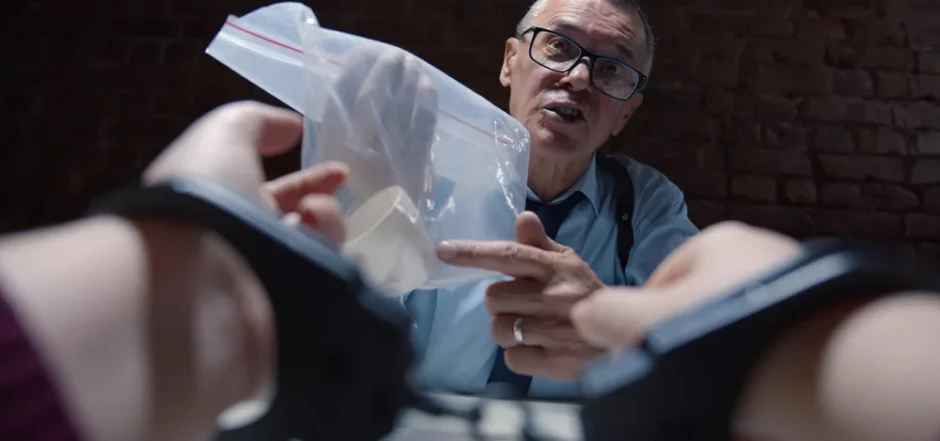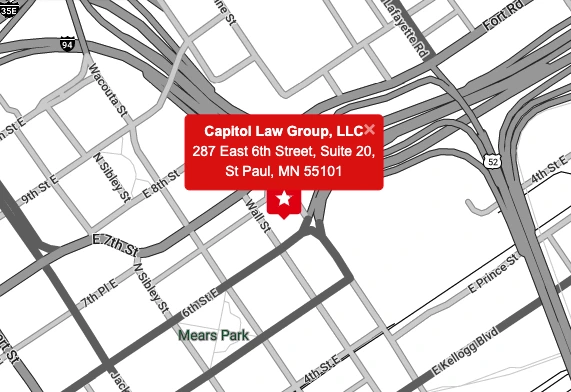Do the Different Burdens of Proof Matter to Criminal Attorneys in St. Paul?

In the everyday world, “guilt” and “innocence” are usually moral terms. We often feel guilty if we did anything wrong, whether or not anyone witnessed our misdeed. And, we are only innocent in the eyes of others if we did absolutely nothing wrong.
But a courtroom is not a church or a mosque. Morality is irrelevant. Instead, guilty and innocent are roughly synonymous with “proved” and “not proved.” Therefore, the burden of proof means a lot to criminal attorneys in St. Paul, as outlined below.
To be precise, the burden of proof means a lot to Ramsey County prosecutors. The state has the burden of proof in criminal cases. Defendants do not need to prove anything. That’s why some criminal attorneys in St. Paul do not call witnesses to the stand. That’s also why some defense lawyers delay proceedings to the nth degree if possible. Delay almost always disproportionately harms the party with the burden of proof.
The Preponderance of the Evidence
Most criminal attorneys in St. Paul do not deal with this level of proof. It usually only applies in civil proceedings. However, it’s useful to look at this level of proof for comparative purposes. Additionally, this burden of evidence sometimes applies in a few criminal cases.
A preponderance of the evidence means more likely than not. To better understand the difference between a preponderance of the proof and beyond a reasonable doubt, the criminal standard, let’s look at a hit-and-run claim.
Assume there are no eyewitnesses to a fatal hit-and-run accident. However, a traffic camera recorded a pickup with front end damage and a license plate ending in “JKL” speeding away from the scene. That evidence is probably sufficient to track down the truck’s owner, but it does not identify the driver.
This evidence would probably hold up in a civil hit-and-run accident claim. It’s more likely than not that the pickup truck’s owner was driving the vehicle at that time.
This evidence would probably not hold up in criminal court. That’s especially true if the truck’s owner sometimes lets other people borrow the truck and the owner has a reasonably good alibi, even something like “I was watching Netflix at home alone.”
A preponderance of the evidence is the standard of proof in a few affirmative defenses, such as self-defense or defense of others. Otherwise, criminal attorneys in St. Paul must only create reasonable doubt.
Clear and Convincing Evidence
This standard of proof is typically used in child custody and some other juvenile matters. Clear and convincing means the evidence presented is “is highly and substantially more likely to be true than untrue.” Furthermore, “the fact finder must be convinced that the contention is highly probable.”
To help Ramsey County jurors understand this level of proof, many criminal attorneys in St. Paul point out that clear and convincing proof is the standard of evidence in child removal cases. So, if the state of Minnesota wanted to take your children away, how sure would you want the jury to be? Is pretty sure good enough? Or would you want them to be absolutely convinced that removal is in the best interests of the children?
Criminal Attorneys in St. Paul and Beyond a Reasonable Doubt
Different states define reasonable doubt differently. Some states do not define it at all. In Minnesota, reasonable doubt is not based on “speculation” or “fanciful and capricious” doubt.
Let’s reconsider the driving example and change the facts a bit. Assume Stan and Ollie are both intoxicated as Stan drives Ollie home. Stan rear-ends another vehicle at a stoplight. By the time first responders arrive, Stan and Ollie have both exited the vehicle. When officers ask who was driving the car, Stan and Ollie both wisely assert their Fifth Amendment right to remain silent.
Under these facts, both Stan and Ollie could be charged with DUI, but the evidence is probably not strong enough for a conviction. Only one of them was driving. There’s no way to tell which one.
Let’s change the facts even more. Assume the other motorist saw Stan emerge from the driver’s side after the accident. There is still doubt that Stan was driving. The motorist did not see Stan behind the wheel. And, Stan and Ollie could have swapped places. But this doubt is speculative. If an attorney plants reasonable doubt in the mind of even one juror, the defendant is not guilty as a matter of law.
Contact a Hard-Hitting Lawyer
Prosecutors generally need overwhelming evidence to convict defendants. For a free consultation with an experienced criminal attorney in St. Paul, contact Capitol City Law Group, LLC. Go online now, call us at 651-705-8580, or stop by 287 6th St E, Suite 20, St Paul, MN 55101.




